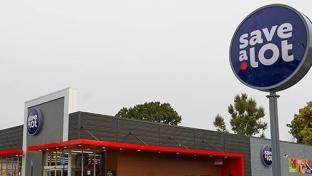EXCLUSIVE: How Raley’s Balances Integration and Independence for Maximum Impact
As it pursues a holistic approach to serving people, communities and the planet, The Raley’s Companies is focused on purpose-driven growth under the umbrella of "Helping Change the Way the World Eats One Plate at a Time." In 2021, Raley’s acquired Bashas’ Family of Stores and became known as The Raley’s Companies. Today the enterprise includes Raley’s, Bashas’, Food City, AJ’s, Bashas’ Diné Markets, Full Circle and Farm Fresh to You banners, operating in eight states and serving four tribal nations. The company also runs three retail warehouses, two DTC facilities, three trucking companies and an on-demand delivery operation.
Coinciding with the April 22 release of its Impact Report, Progressive Grocer spoke with Chelsea (Minor) Carbahal, VP of community impact and public affairs at The Raley's Companies and executive director of Raley’s Food for Families, about how the organization continues to expand and integrate focused on the needs of its team members, customers and communities across its footprint.
Progressive Grocer: How are you balancing restructuring with purpose-driven growth, and how is that balance reflected in your recent Impact Report?
Chelsea Carbahal: Our long-range plan is centered on growth through acquisition and in 2021, we created The Raley’s Companies to focus on that growth, remaining independent and family owned. Ultimately, we ask, “How do we meet the customer where they are?” This Impact Report is our first chance as a new enterprise to showcase who we are as an organization, our values and how we show up.
PG: What is an example of integration across the new structure in pursuit of those goals?
CC: We have a strategic partnership with fieldTRUE and in some situations, have fieldTRUE boxes that are hubbed and distributed out of the back of Raley’s locations. Utilizing our physical store location is a way to leverage them into new markets and territories. They also have a technology arm that created their app that supports fieldTRUE, and has now developed Raley’s new e-commerce platform and will help us achieve that at Bashas’ too in the future.
PG: On that note, how does collaboration across different groups within and beyond your business drive purpose-driven growth, with innovative minds working together?
CC: We talk about the benefit of being a larger enterprise, and shared knowledge is a huge component of that, with different brands. Bashas’, for example, does an incredible job of diversifying its brand and serving unique customers. We have learned a lot from Bashas’ brands including AJ’s and Food City. They are special brands that have a lot of growth potential as we think about the future.
When we think about the economic headwinds we are experiencing, that diversification keeps the bottom line strong – we are not singularly focused on one customer base, region or brand.
PG: How does diversification help you make an impact with communities across your larger footprint?
CC: Our commitment to community and overall strategy is the same, but how we show support in each of our six impact areas differs within the portfolio. Financial and in-kind donations represent a significant share of our giving. Supporting locally is important – each division has their own community team who identifies the investment, ensuring the investment makes the greatest local impact.
[Never miss a story – sign up for Progressive Grocer's FREE Daily newsletter]
We also have a lot of shared partnership and projects we complete as an enterprise. Each December, Raley’s, Bashas’ and fieldTRUE host the Holiday Hope Drive, where we accept donations from customers at point of purchase. All of the donations collected go to regional food banks in the areas we serve. Last year, we raised more than $1.75 million for roughly 20 food banks.
PG: How did that approach emerge through the M&A process?
CC: We’ve been very thoughtful in the transition. The first year was listening and learning, and sometimes hard conversations, when we talked about things like “What do you do?,” “Let’s meet your community partners,” and “Let’s talk about what those benefits are to the community.” The second year was transitional, where we strategized and brainstormed how we would work together. And now in year three, we have full alignment in our key impact areas including food access, advocating for good, child welfare, education, wellness and sustainability.
PG: How has this process that fuses integration and diversification also improve the employee experience?
CC: Another section of our Impact Report centers on our people. We want each team member to be their best and true self and take pride in service excellence. Our leadership development programs, and educational opportunities help each person expand their skills and potential. We’ve invested $475,000 in leadership programs, which has reached more than 1,000 team members. Our retention rate from these programs is 73%.
As it relates to education, The Raley’s Companies also provides tuition reimbursement for any team member who is enrolled in the Retail Management Certificate Program.








